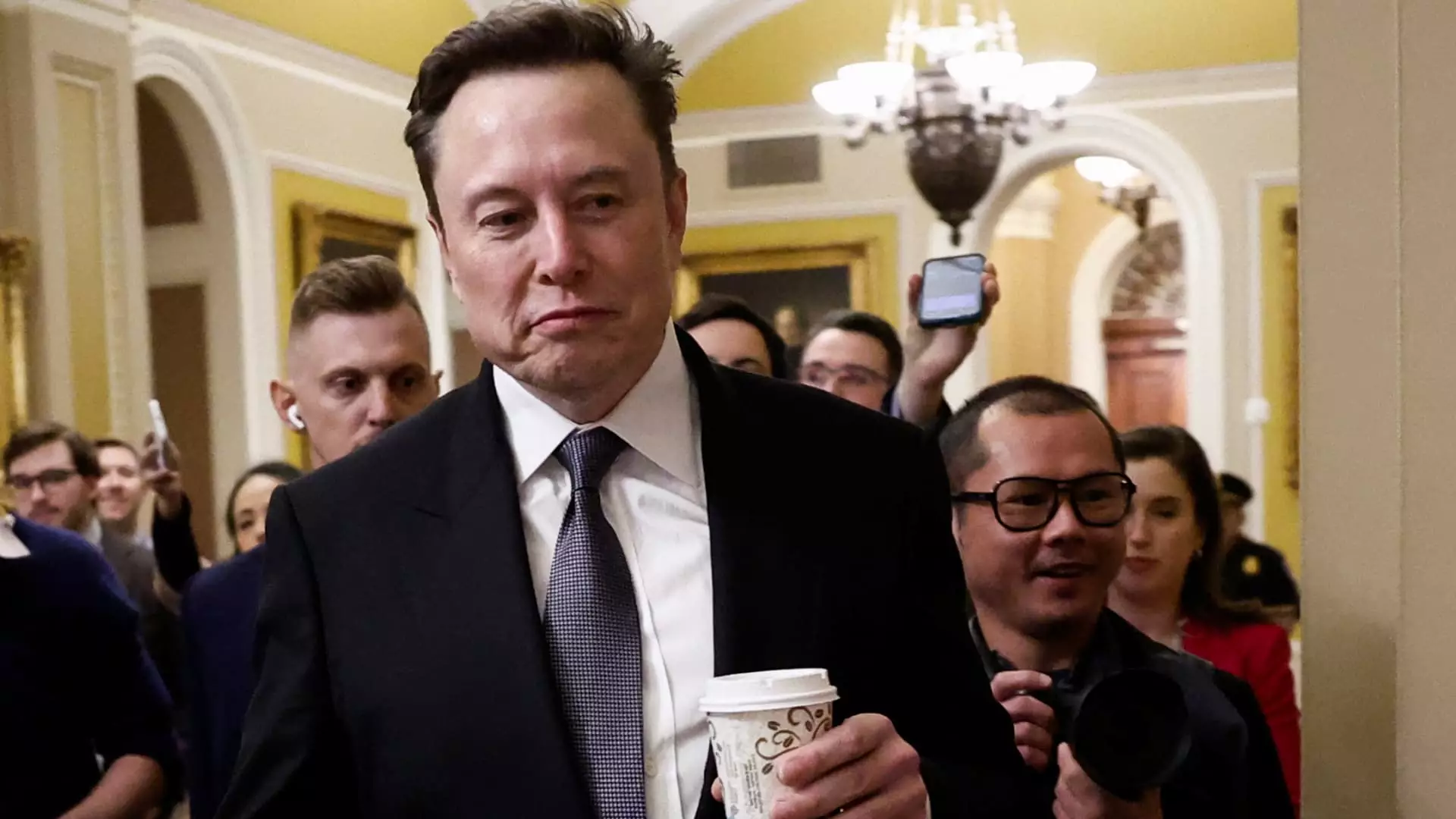The political landscape in the United States is frequently marked by contentious debates, especially as they pertain to the intersection of business practices and foreign policy. The recent clash involving prominent House Democrats—Jim McGovern from Massachusetts and Rosa DeLauro from Connecticut—highlights a significant geopolitical issue related to the influence of tech mogul Elon Musk on American legislative decisions. This situation serves as a lens through which to examine the delicate balance of politics, corporate interests, and national security, particularly regarding U.S. investments in China.
In a recent revelation, McGovern and DeLauro accused their Republican counterparts of yielding to Musk’s influence, which they argue led to the downfall of a vital bipartisan government funding bill aimed at regulating U.S. investments in China. According to these lawmakers, the debate was not just about governance but was deeply intertwined with Musk’s business interests, particularly his ventures in China. The inability to pass the proposed legislation is indicative of a broader failure of bipartisanship, suggesting that ideological differences may be overshadowed by personal allegiances and corporate lobbying.
The funding bill initially outlined measures to curb the transfer of advanced technologies, notably in artificial intelligence and quantum computing, to foreign entities, thereby ensuring the retention of high-skilled jobs within the United States. McGovern lamented that the bill could have effectively shielded American jobs and technology, stating that Musk’s interests in China were a significant impediment. This raises critical questions about the role of individual executives in shaping legislative agendas and the implications that arise when corporate interests clash with national priorities.
Musk’s enterprises, particularly Tesla and SpaceX, reveal a complex relationship with China. Tesla is notably the only foreign automaker that operates in China without a local joint venture, reflecting a unique albeit precarious position. The establishment of a battery plant in Shanghai and ambitions in self-driving vehicle technology highlight Musk’s commitment to maintaining a strong market presence in China. However, the dependency on favorable treatment from Chinese authorities carries considerable risks, especially in the context of U.S.-China tensions.
The critics, including DeLauro, have underscored the potential national security threats posed by Musk’s entanglement with the Chinese government. For instance, SpaceX’s reported withholding of Starlink internet services from Taiwan following requests from Chinese and Russian leaders raises alarms over corporate compliance with foreign demands. This behavior not only contradicts American ideals of freedom and democratic support for Taiwan but also insinuates a troubling concession to authoritarian pressures.
The influence of Elon Musk extends beyond mere business operations; it has seeped into the political arena, creating a culture of favoritism that can undermine congressional authority. DeLauro’s stark characterization of Musk as “President” in correspondence to Congress reflects growing frustrations regarding the inversion of power dynamics where business leaders transcend political structures. This sentiment was amplified following Trump’s public opposition to the funding bill, suggesting collaboration between Musk and political figures to advance specific agendas.
Musk’s recent comments on social media, where he disparaged DeLauro, exemplify his combative approach towards criticism. This behavior is symptomatic of a broader trend where influential figures leverage platforms to silence dissent, raising ethical concerns regarding discourse and accountability in both business and politics.
Furthermore, Musk’s immense financial contributions to Trump’s political campaigns emphasize a dangerous synergy in which wealth can distort democratic processes. This relationship prompts critical discussions around the influence of money in politics and the need for stricter regulations on campaign financing, particularly when national concerns are at stake.
The current landscape calls for a reassessment of how corporate interests are engaged with legislative policies, particularly in sectors crucial to national security. As the dialogue around U.S. investments in China continues, it is imperative for Congress to reclaim its authority and prioritize the protection of both domestic jobs and technologies. Striking a balance between fostering innovation and safeguarding national interests remains a critical challenge moving forward.
The complexities of this situation illustrate the compelling need for transparency and accountability, not only in government actions but also in corporate governance. As the debate over U.S.-China relations escalates, Musk’s actions will likely continue to stimulate significant discussions regarding the interplay of business, technology, and governance—an intersection that will shape the future of American policy and its global standing. The stakes are high, and the consequences of political and corporate entanglements will resonate far beyond legislative chambers if left unchecked.


Leave a Reply